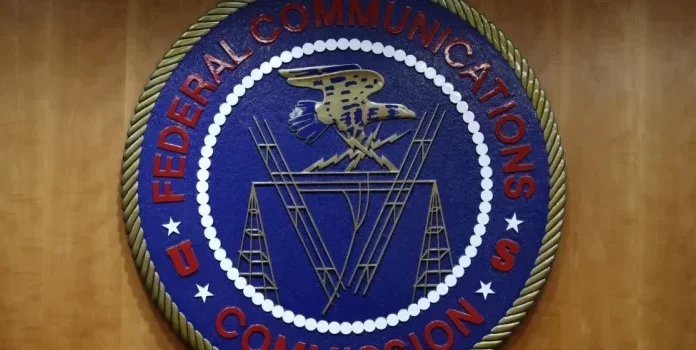(Kevin Whiteley, Headline USA) The Federal Communications Commission recently implemented revisions to its existing legislation, under Biden’s administration.
The Digital Equity Act, through congressional bipartisanship, was launched to address “digital discrimination” in “poorer, less-white neighborhoods,” according to the Associated Press.
The new law allots $2.75 billion via three grant programs to “promote digital equity and inclusion,” according to BroadbandUSA.ntia.doc.gov.
The average broadband is 25 megabits per second—roughly 167 Mbps for U.S. median homes.
One such reportedly disproportionately affected New Orleans woman’s AT&T internet is operating on 1 Mbps, for comparison, AP cited.
“AT&T offers residents of the mostly white, upper-income neighborhood of Lakeview internet speeds almost 400 times faster … for the same price: $55 a month,” AP said.
“We know broadband is essential infrastructure for modern life, and these rules will bring us one step closer to ensuring everyone has access to the internet, no matter who they are or where they live,” FCC Chairwoman Jessica Rosenworcel said.
There has yet to be a specific, clear standard for assessing inequities in the digital industry. Biden’s FCC will be using the latest rules as a basis for determining whether or not an Internet Service Provider discriminated intentionally on the grounds of race and income as these rules are applied.
The FCC will also be reinstating former-President Barack Obama’s net neutrality rules “meant to connect every U.S. household to quality, internet service by 2030 regardless of income or identity,” Joe Biden said, according to AP.
However, “[FCC] has found ‘little to no evidence’ of intentional discrimination. It fails to give any examples of digital discrimination where people and communities are systematically unserved based on their ‘income level, race, ethnicity, color, religion, or national origin,’” according to a deeper, Nov. 13 examination from The Federalist.
While Biden’s FCC is using these rules to initiate an investigation, there appears to be no solid impetus to do so—teetering on Fourth Amendment issues.
More, prior to the Nov. 15 vote, FCC Commissioner Brendan Carr took to Twitter on Nov. 6, opposing Biden’s FCC efforts, stating, “Those rules would give the federal government a roving mandate to micromanage nearly every aspect of how the internet functions—from how ISPs allocate capital and where they build, to the services that consumers can purchase; from the profits that ISPs can realize and how they market and advertise services, to the discounts and promotions that consumers can receive.”
President Biden has called on the FCC to adopt new rules of breathtaking scope.
Those rules would give the federal government a roving mandate to micromanage nearly every aspect of how the Internet functions—from how ISPs allocate capital and where they build, to the services… pic.twitter.com/X8eyxM3Qy0
— Brendan Carr (@BrendanCarrFCC) November 7, 2023
Commissioner Carr followed up with two more posts amid the FCC’s deliberation and on the day of its decision to adopt the news rules.
“President Biden’s much anticipated spectrum plan is missing one big thing: spectrum. The plan does not commit to freeing up even one iota of spectrum,” Carr stated in his Nov. 13 post.
President Biden’s much anticipated spectrum plan is missing one big thing: spectrum.
The plan does not commit to freeing up even one iota of spectrum.
It is a swing and miss that represents a real set back for America’s leadership. pic.twitter.com/6OLA3cifJi
— Brendan Carr (@BrendanCarrFCC) November 13, 2023
The commissioner included his official letter of dissent within his post on Nov. 15—when the agency voted in favor to revise the legislation.
“Today, the FCC voted in favor of President Biden’s plan for ‘digital equity.’ I dissented because the plan amounts to an unlawful power grab that gives the government a roving mandate to micromanage nearly every aspect of how the Internet functions,” Carr explained in his post.
Today, the FCC voted in favor of President Biden’s plan for “digital equity.”
I dissented because the plan amounts to an unlawful power grab that gives the government a roving mandate to micromanage nearly every aspect of how the Internet functions.https://t.co/eLuQRb1xld
⬆️ pic.twitter.com/ENZqCDRPVx— Brendan Carr (@BrendanCarrFCC) November 16, 2023
The latest revisions to FCC’s rules also entail a significant caveat—an exemption for Biden’s administration—as Carr cited in his Nov. 16 post.
Well, surprise, surprise.
In a last minute edit, the Biden Administration secured an exemption from the government’s new “digital equity” rule for . . . itself.
That’s right. The Biden Administration does not want to be bound by the requirements of the “digital equity” law… pic.twitter.com/MYTFmpxQty
— Brendan Carr (@BrendanCarrFCC) November 17, 2023
This latest race-based legislation’s in conjunction with a reportedly, pre-existing practice of the government collecting citizens’ personal data.
Not just standard name, date of birth, address and social security number but also facial-recognition scans, DNA, iris scans and other information, according to Epic.org via ZeroHedge.
Some of this information is gathered if/when attending “a political rally, a town hall, or just fit a demographic a campaign is after,” ZH’s report notes. Campaigns allegedly hire data vendors to gather individuals’ personal details via televisions and digital devices.
The government can also purchase commercially available information (CAI) from third-party sources,” according to a January 2022 report by the Office of the Director of National Intelligence.
This can extend to drivers, as the “Department of Motor Vehicles in states around the country have been selling drivers’ personal information ‘to thousands of businesses, including private investigators who spy on people for a profit,’” despite Congress having passed the Driver’s Privacy Protection Act in 1994, according to VICE via ZH.
While the Privacy Act of 1974 and E-Government Act of 2002 are in place to supposedly limit the government from gathering personal data via assessments and “substantive protections” of individuals, “agencies often rubberstamp dangerous, privacy practices by performing rote, impact assessments and exempting databases from many of the protections of the Privacy Act.”



